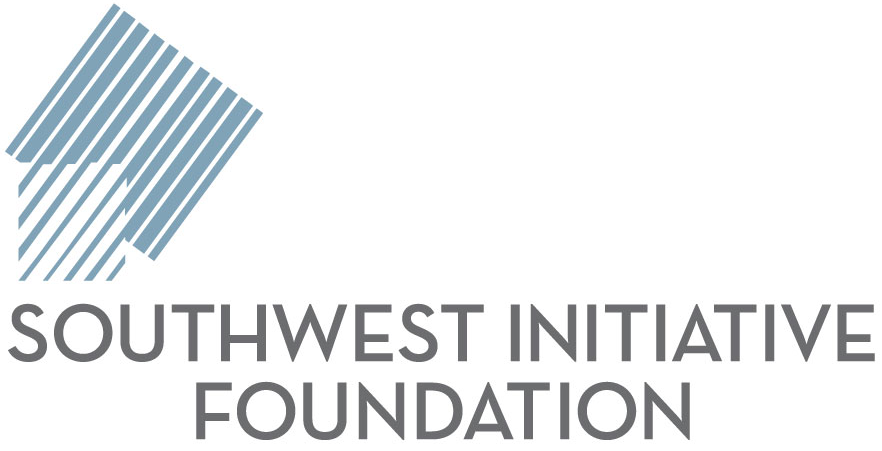Lending a Hand: Southwest Initiative Foundation taps unique micro-financing program to help local entrepreneurs and businesses
Lessons Learned
 The Southwest Initiative Foundation got interested in becoming a Kiva loan administrator after a staff member learned about the program at a conference. Now two years into the program, Greg Jodzio, Microenterprise specialist at SWIF, offered up some insight into how to get the most out of being a Kiva administrator.
The Southwest Initiative Foundation got interested in becoming a Kiva loan administrator after a staff member learned about the program at a conference. Now two years into the program, Greg Jodzio, Microenterprise specialist at SWIF, offered up some insight into how to get the most out of being a Kiva administrator.
Get the word out: While a relatively small program, Kiva loans have significant media appeal because the approach is unique and can involved a wide range of people. Jodzio says involvement in the program has generated considerable positive PR for SWIF.
Connect with lenders: The Kiva program can be a good supplement to other lending efforts sponsored by a community foundation. “We consistently talk about it with local economic development people and banks so they are aware the program exists and can suggest it as an option for individuals,” says Jodzio.
Get involved: One of the internal benefits of being involved with Kiva is it offers community foundation staffers and supporters an opportunity to get involved on a small scale. “I think it’s just a great thing to do,” says Jodzio. “A number of staffer here have made loans of $25 or more for local businesses that are starting up and it provides a real sense of satisfaction and a connection to the work we are doing here.”

By Scott Westcott
Jenni Harris had driven by the Southwest Initiative Foundation thousands of times on her way to work, yet she never really knew what the organization did.
That is until she needed assistance to make her dream of starting her own business become reality. After several unsuccessful attempts to borrow money from local banks for the purchase of a janitorial services company, Harris was directed by a local university to the Southwest Initiative Foundation (SWIF) to explore the possibility of securing a microenterprise loan.
Harris worked with SWIF to ultimately secure a five-year, $35,000 loan to purchase the business with her husband, Jason. Also, she became one of the first local recipients of an additional loan through Kiva, a unique global microfinance program that leverages the Internet and a worldwide network of microfinance institutions and individuals to help secure funding for entrepreneurs with loans as small as $25. The Kiva loan, administered through SWIF, generated an additional $3,000 in start-up capital for Harris and gave her a deep appreciation and better understanding for SWIF’s role in her community.
“I think it is phenomenal what they do at SWIF,” Harris says. “They are promoting economic growth in the community and being involved with Kiva shows they are interested in the bigger picture of exposing people to the whole idea of small-scale micro financing.”
Minnesota’s First
SWIF is the first organization in Minnesota to become a Kiva trustee. In that role, the Foundation administers the loan program, providing an additional funding option for local entrepreneurs, while also creating the opportunity for citizens in its 18-county service area to offer small-scale funding to support local business. Now in its second year, the Kiva loan program has provided funding for four local entrepreneurs, says Greg Jodzio, Microenterprise specialist at SWIF.
“One of our primary missions is to increase the economic well-being for businesses in the community,” Jodzio says. “Getting involved as a trustee for Kiva seemed to be the right thing for us to do to expand on that mission. I just see it as a win-win for the Foundation and the community.”
SWIF has been administering its own, more traditional, microenterprise program for the past 13 years, providing customized support for entrepreneurs through ongoing technical assistance and training for the length of loans provided. Eligible businesses may be start-up or expansion projects including—but not limited to—manufacturing, service, retail and daycare.
The Foundation partners with several local banks to provide loans of up to $50,000 that may be used for start-up costs, equipment, inventory, furniture and fixtures and working capital. The loan term is 10 years or less, with a 7.5 percent interest base rate.
Meanwhile, the zero-interest Kiva loan can be prove to be beneficial as a supplement to a larger loan, or to provide seed money for an small-scale entrepreneur just getting started.
“We look at a lot of what we do here as investments in schools, kids, the local economy and our community,” Jodzio says. “If we can make a difference in our community by helping someone start their own business, then all the better.”
Paving a path to financial security
For Harris – the combination of $35,000 microenterprise loan and the $3,000 Kiva loan allowed her to purchase the existing janitorial business – and take steps toward improving her family life and future. She was working as a English-as-a-second-language teacher and her husband was a long-haul trucker. The couple viewed the move to running their own business as their best path to financial security, as well as a way to spend more time with their children.
“We wanted our kids to see us actually working and not just coming home exhausted every day,” she says. “One of the things that is appealing about janitorial is it is pretty recession-proof business.”
Harris did her homework. She spent six months working for the business as part of the cleaning team and learning the ropes. It was during that time that a local university directed her to the SWIF, where she went through a detailed process that required her to hone her business plan and provide financial data and other supporting information to qualify for loans.
“It was an involved process, but I appreciate all the details they made me go through,” Harris says. “I think a huge part of our initial success was providing so much detail that it forced us to think through every aspect of the business.”
When it came to the Kiva loan, the Foundation helped Harris reach the initial requirement of raising 15 percent of the loan amount during a private funding period in which many SWIF employees chipped in. After that, the Harris’ pitch for funding was posted on the Kiva Web site. It took only a couple weeks to secure the $3,000, with funding coming in from around the globe, including lenders from China, Germany and the Netherlands.
‘Easy way to make a big difference’
Since taking over Hutchfield Services, Inc. on Feb 1, Harris says business is good. They have secured several new clients and have hired 6 new employees, bringing their total staff to 15.
Meanwhile, SWIF is working toward administering several additional Kiva loans, and continues to get the word out about the opportunity for small business owners and entrepreneurs.
Harris says she intends to pay it forward in the future, providing Kiva funding for other entrepreneurs in the area and around the world. For his part, Jodzio says he and other SWIF employees have been frequent lenders to the program as well.
“I will continue to lend to our projects here,” Jodzio says. “To me the benefit is the endorphins of feeling good and helping someone out. It’s a pretty easy way to make a big difference in someone’s life.”

